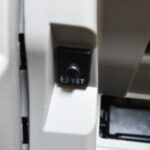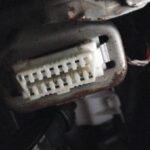As a car enthusiast and content creator for carparteu.com, I understand the importance of having the right tools for car diagnostics and repair. One essential tool in modern car maintenance is the OBD2 adapter, and increasingly, Bluetooth OBD2 adapters are becoming popular for their convenience and wireless capabilities. This guide will delve into the world of Bluetooth OBD2 adapters, helping you choose the best one for your needs, ensuring reliable connection and accurate diagnostics for your vehicle.
Understanding Bluetooth OBD2 Adapters
Bluetooth OBD2 adapters, often based on the ELM327 chip, bridge the gap between your car’s computer and your smartphone, tablet, or laptop. They wirelessly transmit vehicle data to diagnostic apps, allowing you to read error codes, monitor engine performance, and much more. The ELM327 adapter is the key component facilitating this communication, and its quality directly impacts the effectiveness of your car diagnostics. Choosing a reliable bluetooth adapter obd2 is crucial for a seamless diagnostic experience.
If you’re looking for a quick recommendation without diving into the technical details, feel free to jump to our recommendations for quality adapters. However, understanding the nuances of these adapters will empower you to make a more informed decision.
Types of Bluetooth OBD2 Connections
When selecting a bluetooth adapter obd2, the connection type is paramount for compatibility with your devices. Adapters primarily use these Bluetooth technologies:
-
Classic Bluetooth (Versions 1.x, 2.x, 3.x): This is the traditional Bluetooth technology, widely compatible with Android devices. It offers a good balance of speed and reliability for car diagnostics.
-
Bluetooth Low Energy (BLE or Bluetooth LE, Version 4.0 and above): Designed for low power consumption, Bluetooth LE is essential for Apple iOS devices (iPhones and iPads). iOS limitations prevent classic Bluetooth from working with OBD2 adapters, making Ble Adapter Obd2 a necessity for Apple users.
-
Bluetooth MFi: This is a certified version of classic Bluetooth specifically for Apple devices. Adapters with Bluetooth MFi undergo Apple’s certification process, ensuring compatibility. These adapters are typically more expensive due to the certification costs.
-
WiFi: While less common for Bluetooth adapters, some OBD2 adapters use WiFi for wireless communication. While compatible with most devices, WiFi connections can sometimes be less stable and might interfere with your mobile data connection.
It’s crucial to differentiate between Bluetooth and Bluetooth LE. Despite the similar names, they are fundamentally different communication protocols. Bluetooth LE is optimized for low energy consumption, making it ideal for mobile devices and applications where battery life is a concern.
For users with iPhones or iPads, understanding the ble adapter obd2 requirement is non-negotiable. Classic Bluetooth adapters will simply not work due to Apple’s operating system restrictions.
Choosing the Right Bluetooth OBD2 Adapter for Your Operating System
The operating system of your smartphone or tablet dictates the type of bluetooth adapter obd2 you should choose.
Apple iOS (iPhone/iPad)
Apple iOS devices (iPhone and iPad) are compatible with Bluetooth LE, WiFi, and Bluetooth MFi adapters. Critically, classic Bluetooth adapters are not supported on iOS due to operating system limitations. This is a common point of confusion for users, so it’s vital to emphasize: if you have an iPhone or iPad, you need a Bluetooth LE (BLE) or Bluetooth MFi OBD2 adapter.
For iOS users, Bluetooth LE adapters are generally the recommended choice. They offer a good balance of ease of connection, acceptable data transfer speeds, and availability. While Bluetooth MFi adapters provide top-tier performance, they come at a premium price. WiFi adapters, while compatible, can introduce connection complexities.
Key takeaway for iOS: Prioritize Bluetooth LE (BLE) OBD2 adapters for the best user experience. Always double-check the adapter specifications to confirm Bluetooth LE compatibility before purchasing.
Google Android
Android devices offer more flexibility, supporting classic Bluetooth, Bluetooth LE, and WiFi adapters. For Android users, classic Bluetooth adapters are often recommended. They generally offer faster data transfer rates compared to Bluetooth LE and are known for reliable connections. Classic Bluetooth adapters are also widely available and typically more affordable.
While Bluetooth LE adapters work with Android, classic Bluetooth is often preferred for performance. WiFi adapters are also an option for Android, but similar to iOS, they might introduce connection complexities.
Key takeaway for Android: Classic Bluetooth OBD2 adapters are a solid and often preferred choice, offering speed and reliability.
Quality Matters: Avoiding “Bad” ELM327 Adapters
Beyond connection type, the quality of the bluetooth adapter obd2 itself is paramount. Unfortunately, the market is saturated with low-quality adapters that can cause a range of issues. Forget outdated notions about specific ELM327 versions or board counts. These are easily faked and no longer reliable indicators of quality. Focus on the adapter’s performance and reliability in real-world use.
A good bluetooth adapter obd2 simply works as expected – it connects reliably, transmits data accurately, and doesn’t introduce glitches or freezes. “Bad” adapters, on the other hand, can manifest numerous problems:
- Complete Failure: The adapter might not work at all, failing to connect to your car’s computer.
- Unstable Operation: Intermittent connectivity issues, freezing, spontaneous reboots, or temperature/humidity sensitivity can plague bad adapters. They might work sporadically, making diagnosis unreliable.
- Limited Command Support: Some adapters falsely claim to support all ELM327 commands but only implement a subset, restricting diagnostic capabilities.
- Fixed ECU Address: Low-quality adapters might be hard-coded to communicate with only a specific ECU address, preventing access to other control units in your car.
- Data Length Limits: Restrictions on the length of data requests and responses can hinder comprehensive diagnostics.
- Data Loss: Packet loss during data transmission can lead to incomplete and unusable diagnostic information.
- Data Corruption: Distorted data transmission can lead to misdiagnosis or, worse, unintended commands being sent to your car’s computer.
- Protocol Incompatibility: Limited protocol support means the adapter might work on some cars but not others, depending on the vehicle’s communication protocol.
- On-board Network Interference: Faulty adapters can flood your car’s network with junk data, disrupting the ECU’s primary function and potentially causing engine issues.
- Coding and Service Mode Failures: For advanced functions like ECU coding, a high-quality adapter is essential. A bad adapter can lead to data corruption during writing, potentially causing serious damage to your car’s computer.
The market is unfortunately flooded with “bad” adapters. The risk of purchasing a faulty bluetooth adapter obd2 is significant, highlighting the importance of choosing reputable brands and models.
Examples of low-quality Bluetooth OBD2 adapters to avoid.
Recommended Bluetooth OBD2 Adapters for Reliability
Based on extensive experience and feedback from Car Scanner app users, here are some recommended bluetooth adapter obd2 options, categorized from higher-end to more budget-friendly:
-
OBDLink MX+ with Bluetooth MFi: A top-of-the-line adapter, compatible with both iOS and Android. While pricier, it offers exceptional performance and reliability, especially for iOS users needing Bluetooth MFi. (Amazon Link #ad link)
-
OBDLink CX with Bluetooth LE: Another excellent option from OBDLink, focusing on Bluetooth LE. Ideal for iOS and Android, offering a large memory buffer and fast performance. (Amazon Link #ad link)
-
vLinker Series (MC+, FS, MS): vLinker adapters have significantly improved in quality and are now highly recommended.
- vLinker MC+ with Bluetooth LE: Excellent Bluetooth LE adapter for iOS and Android. (Amazon Link #ad link)
- vLinker FS with Bluetooth MFi: Bluetooth MFi certified for premium iOS performance. (Amazon Link #ad link)
- vLinker MS with Bluetooth MFi: A competitor to OBDLink, offering Bluetooth MFi for iOS.
-
Vgate iCar Pro 2S: A newer and improved version replacing the iCar Pro BLE, offering enhanced performance.
-
Vgate iCar Pro BLE: A versatile adapter with both Bluetooth 2.0 and Bluetooth LE, compatible with iOS, Android, and Windows. Ensure you update the firmware for optimal performance, especially for Toyota and BMW vehicles. (Amazon Link #ad link)
Bluetooth OBD2 Adapters to Avoid
To help you steer clear of problematic adapters, avoid these categories and brands:
- xTool Adapters: Incompatible with ELM327 standards, limited to their proprietary software.
- Wired (USB, COM) Adapters: Car Scanner app exclusively supports wireless adapters.
- “Mini” Adapters: Overwhelmingly associated with low quality and unreliability.
- Extremely Cheap Adapters: Too-good-to-be-true pricing often indicates poor quality components.
- Adapters with MAC Addresses starting with 11:22:33 or 00:00:00: These are red flags for generic, low-quality clones.
- KONNWEI Devices: Quality has declined, often suffering from data packet loss.
- “Micro Mechanic” Adapters: Known for premature failure.
- “THINMI.COM” Adapters: Limited ELM327 command support and frequent fake responses.
- KUULAA Brand Adapters: Generally unreliable.
- Adapters resembling the images shown earlier: While some might function, the vast majority are low quality.
Conclusion: Invest in a Quality Bluetooth OBD2 Adapter
Choosing the right bluetooth adapter obd2 is a critical step towards effective car diagnostics. For iOS users, prioritize Bluetooth LE adapters for seamless compatibility. Android users can benefit from the speed of classic Bluetooth. Regardless of your operating system, investing in a quality adapter from a reputable brand is essential to avoid the pitfalls of unreliable, low-quality devices. By following this guide, you can confidently select a bluetooth adapter obd2 that will provide accurate, reliable, and hassle-free car diagnostics for years to come.
Disclaimer: As an Amazon Associate, I earn from qualifying purchases through the provided affiliate links.


